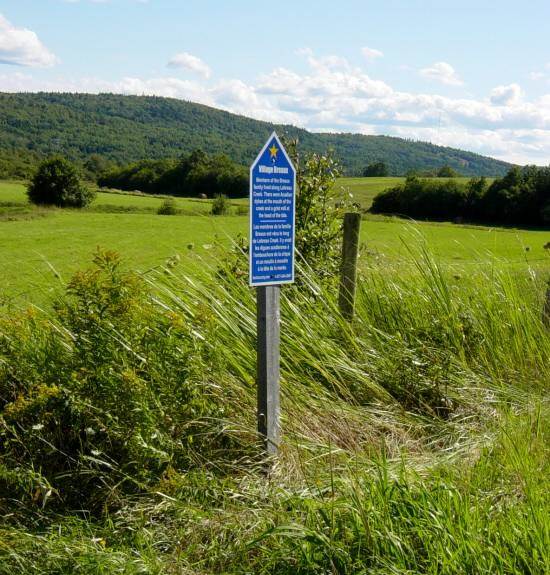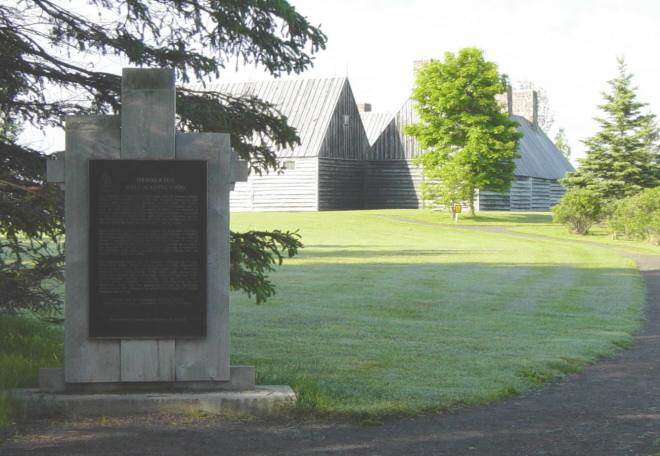
Port Royal Habitation
1605 – 1613
Second-oldest European settlement inNorthAmerica
Date of first settlement
1565 St. Augustine, Florida
♦ 1605 Port Royal, Nova Scotia
♦ pre-1607
Advocate, Nova Scotia
♦ 1607 Jamestown, Virginia
♦ 1608 Quebec City, Quebec
♦ 1620 Plymouth, Massachusetts
Port Royal, 1605, is counted as the second oldest
permanent (continuously-occupied) European settlement
on the North American continent after St. Augustine,
Florida, which was settled by Spain in 1565.
Photographs of
Historic Site
Port Royal
Annapolis County
Nova Scotia
GPS location: 44°42’43″N 65°36’32″W
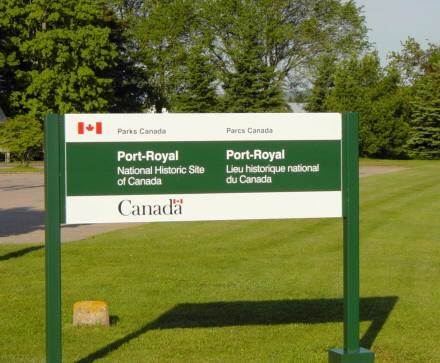
Photographed on 13 June 2003
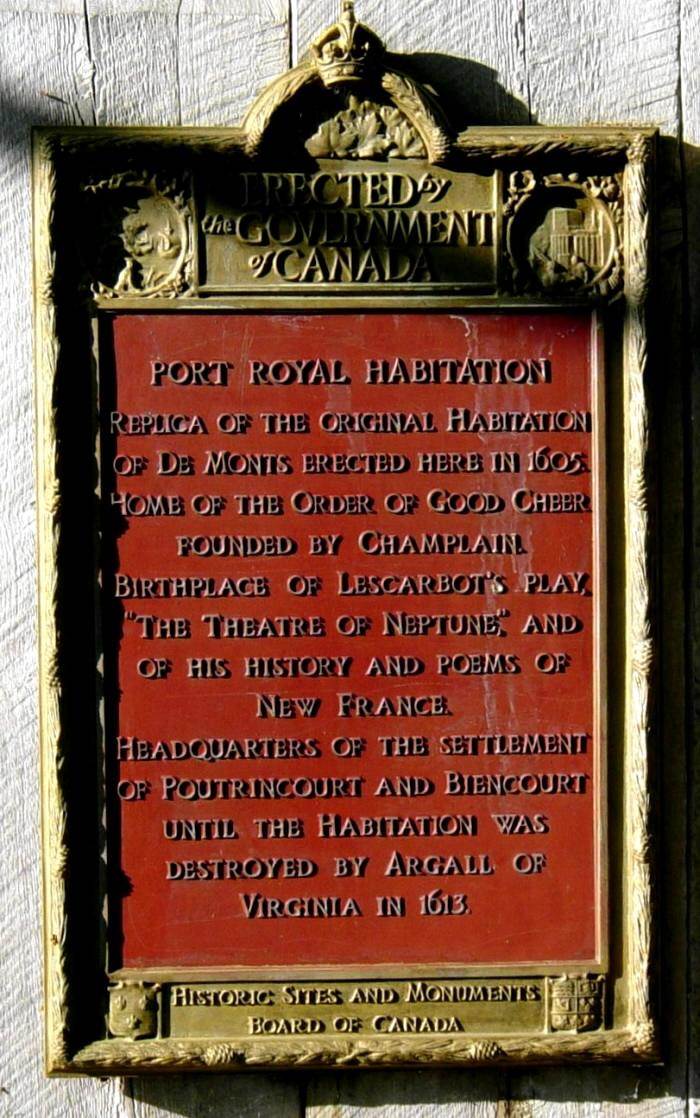
Photographed on 13 June 2003
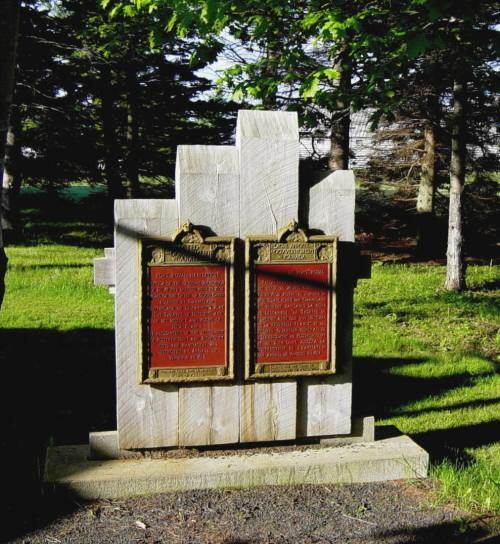
Photographed on 13 June 2003
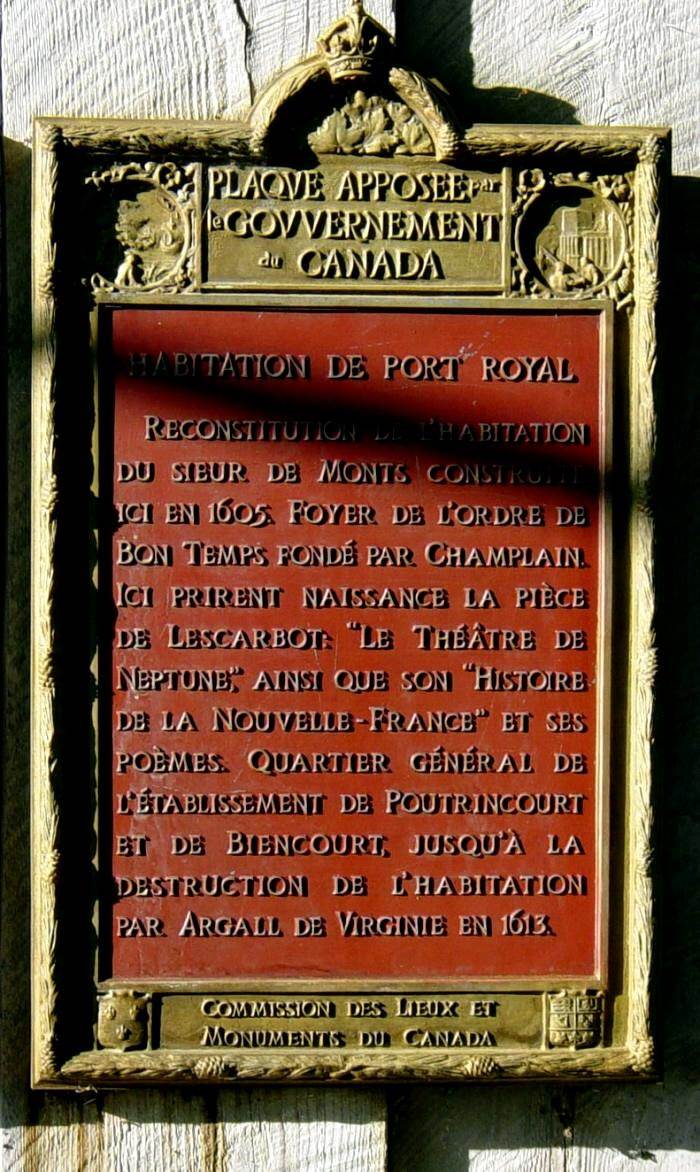
Photographed on 13 June 2003
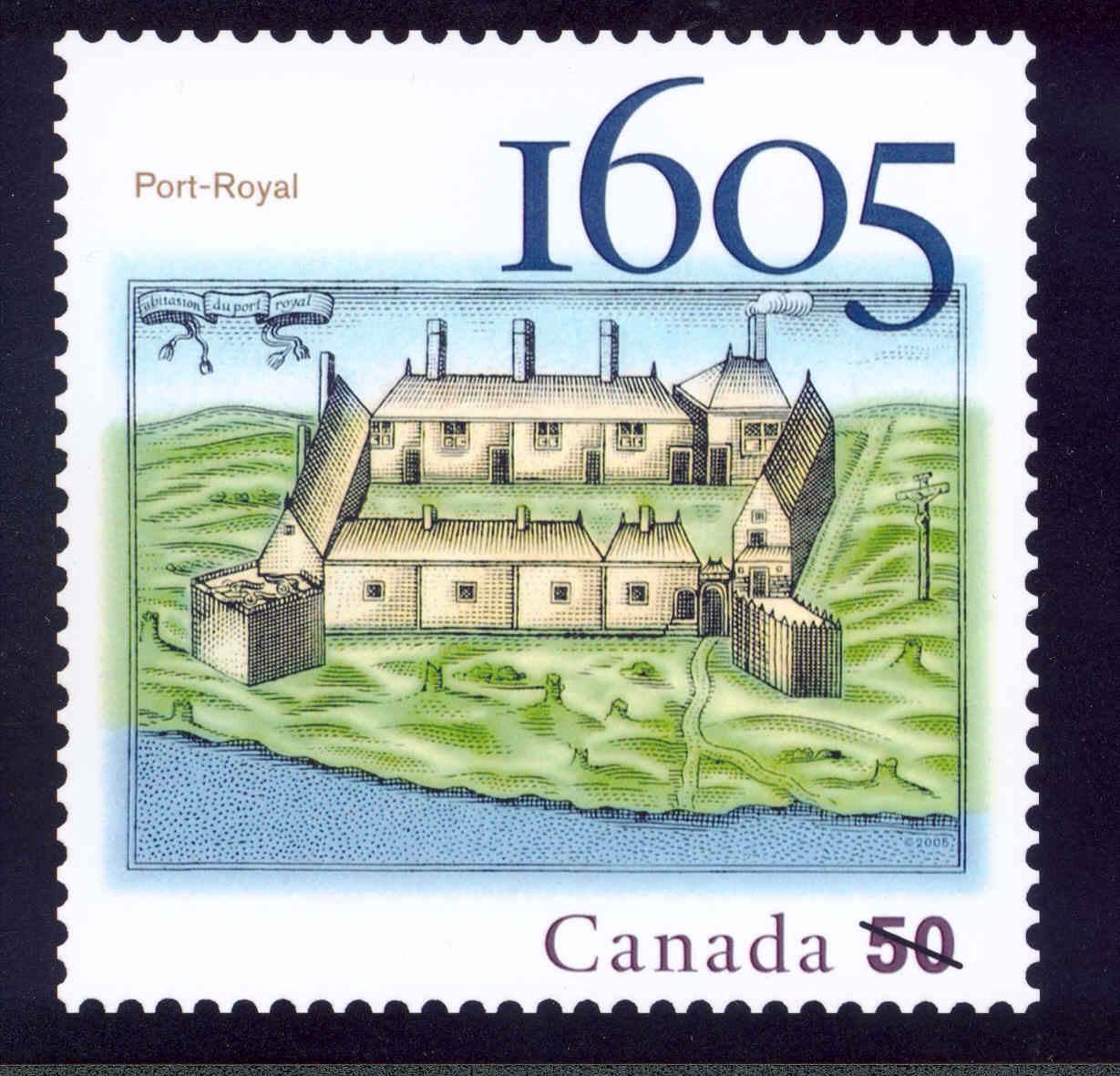
Port Royal 400th anniversary commemorative stamp, 2005
Membertou
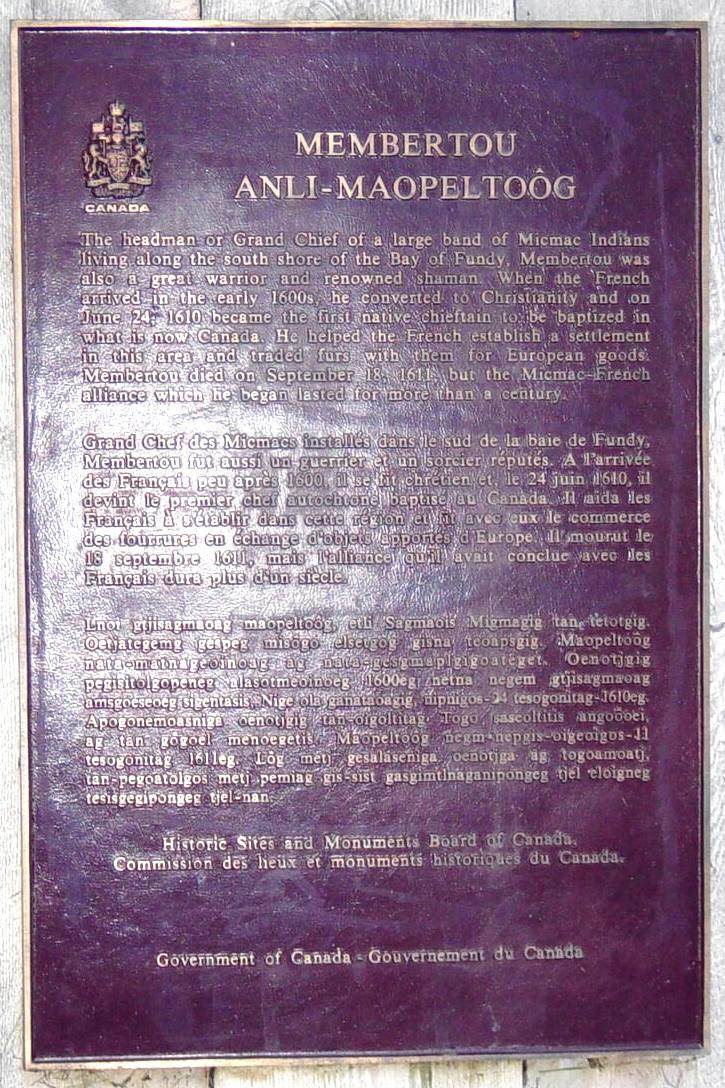
Photographed on 13 June 2003

Photographed on 13 June 2003
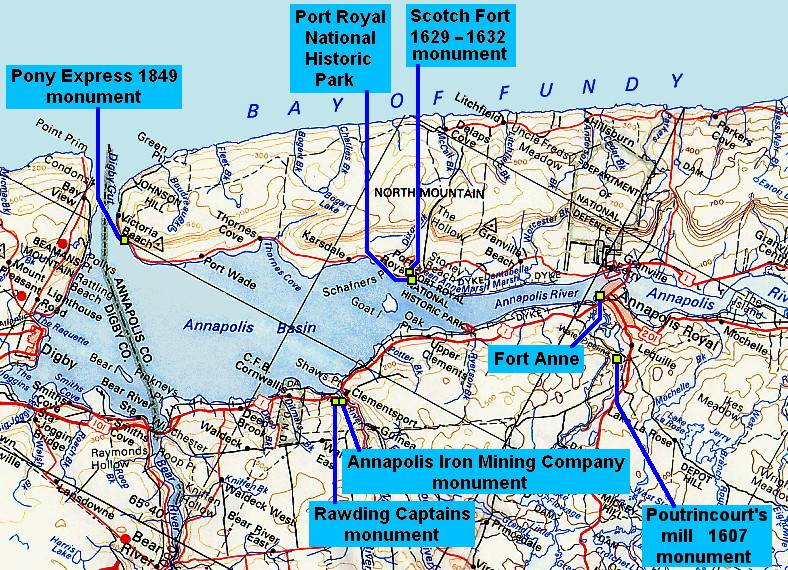
Map showing the location of the Port Royal Habitation
historic site, Annapolis County, Nova Scotia.
Roads are shown as they were in 1978. Except for Highway 101, the
layout of the roads in 2013 has not changed much from that shown here.
…Then as the season [summer1604] waned the vessels, which linked them to the world they had left, unfurled their sails and set out for France. Seventy-nine men remained at St.Croix, among them Champlain. In the vast solitude of forest they settled down for the winter, [1604-05] which was destined to be full of horrors. By spring thirty-five of the company had died of scurvy and twenty more were at the point of death. Evidently St.Croix was not a good place for a colony. The soil was sandy and there was no fresh water. So, in June [1605], after the arrival of a vessel bringing supplies from France, DeMonts and Champlain set out to explore the coasts in search of a better site. But, finding none which they deemed suitable, they decided to tempt fortune at Poutrincourt’s domain of Port Royal. Thither, then, in August the colonists moved, carrying their implements and stores across the Bay of Fundy, and landing on the north side of the Annapolis Basin, opposite Goat Island, where the village of Lower Granville now stands.
The colony thus formed at Port Royal in the summer of 1605 – the first agricultural settlement of Europeans on soil which is now Canadian [emphasis added] – had a broken existence of eight years. Owing to intrigues at the French court, DeMonts lost his charter in1607 and the colony was temporarily abandoned; but it was re-established in1610 by Charles de Biencourt.
The episode of Port Royal, one of the most lively in Canadian history, introduces to us some striking characters. Besides the leaders in the enterprise, already mentioned – DeMonts, Champlain, Poutrincourt, and Biencourt – we meet here Membertou, sagamore of the Micmacs, “a man of a hundred summers” and “the most formidable savage within the memory of man.”
Hither, too, in 1611, came the Jesuits Argall raided and destroyed. He then went on and ravaged Port Royal. And its occupants, young Biencourt and a handful of companions, were forced to take to a wandering life among the Indians…
— Source: FullBooks.com
The Acadian Exiles, part 1 by Arthur G. Doughty, Toronto, 1916
Chronicles of Canada, in thirty-two volumes
Edited by George M. Wrong and H. H. Langton
Sir Arthur G. DoughtyLibrary and Archives Canada
The Acadian Exiles, by Arthur G. DoughtyProject Gutenberg
Links to Relevant Websites
Annapolis Heritage Society http://web.archive.orghttp://www.annapolisheritagesociety.com/portroyal.htm
Nova Scotia Archives and Record Management
http://en.wikipedia.org/wiki/Port_Royal,_Annapolis_County,_Nova_Scotia
Port-Royal_National_Historic_Site_of_Canada
by Barbara M. Schmeisser, Collections of the Royal Nova Scotia Historical Society, Vol. 44 (1996)
|


